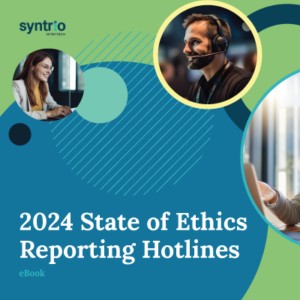Protecting Whistleblowers: A Guide for Organizations
Whistleblowers: Guardians of Ethics, Fearless Exposers of Wrongdoing.
Despite negative connotations, whistleblowers are crucial in uncovering internal misconduct and safeguarding ethical practices. Studies show they’re the most effective weapon against fraud, with over 40% of incidents exposed through internal reports. Organizations that cultivate a “speak-up” culture and thoroughly investigate complaints demonstrate their commitment to integrity.
Fear Can Silence Whistleblowers.
Encouraging whistleblowing requires removing the fear of retaliation. Harassment, bullying, demotions, and denied benefits are just some tactics that silence voices. If employees believe coming forward means professional peril, they’ll stay quiet, leaving misconduct unchecked.
Legal Armor for Whistleblowers.
Numerous federal and state laws protect whistleblowers from retaliation. Some key examples include:
- Whistleblower Protection Act of 1989: Protects federal employees reporting violations of laws or regulations.
- Whistleblower Protection Enhancement Act of 2012: Empowers the U.S. Office of Special Counsel to hold managers accountable for retaliation and provides enhanced remedies for whistleblowers.
- Sarbanes-Oxley Act (SOX): Protects employees reporting securities or fraud issues with “good faith intention.”
- Other laws: Cover areas like workplace safety, wage violations, labor unionization, family leave, and various forms of discrimination.
Building a Shield Against Retaliation:
Protecting whistleblowers is not just about avoiding legal trouble; it’s about fostering a culture of integrity and transparency. Here are some steps to achieve this:
- Educate Staff: Train employees to recognize retaliation, both blatant (harassment) and subtle (cold-shouldering, resource denial). Case studies and role-playing scenarios can effectively illustrate various forms.
- Highlight Consequences: Make sure everyone understands the penalties for retaliation, including legal repercussions and disciplinary action under your organization’s policies.
- Confidential Reporting: Provide anonymous reporting channels, like a third-party hotline, to increase whistleblower comfort and reduce the risk of identification.
- Protection During Investigations: Even with anonymity, situations like sexual harassment may require revealing identities. Consider department reassignments to minimize retaliation risk during investigations.
- Swift and Appropriate Action: When retaliation occurs, addressing it decisively strengthens your anti-retaliation stance. Follow policy guidelines, taking necessary disciplinary action against proven retaliators.
- Continuous Evaluation: Regularly assess your whistleblower protection framework. Review investigation outcomes and update policies to reflect legal changes and ensure effectiveness.
By implementing these measures, organizations can build a culture where whistleblowers are valued, not ostracized. This not only protects employees but also safeguards the organization’s ethical standing and long-term success.
Remember, a protected whistleblower is a voice for transparency, a champion for ethical conduct, and a valuable asset to any organization.
Additional Tips:
- Encourage open communication and a “speak-up” culture where concerns are openly discussed and addressed.
- Lead by example. Top management should actively demonstrate their commitment to ethical behavior and whistleblower protection.
- Reward ethical behavior and celebrate instances where whistleblowing has led to positive change.
Let’s create a world where whistleblowers are not silenced, but empowered to speak up and make a difference.
Download the State of Ethics Hotline 2024 Report:
Gain valuable insights on how to implement and utilize an effective hotline system, fostering a culture of transparency and trust within your company.


